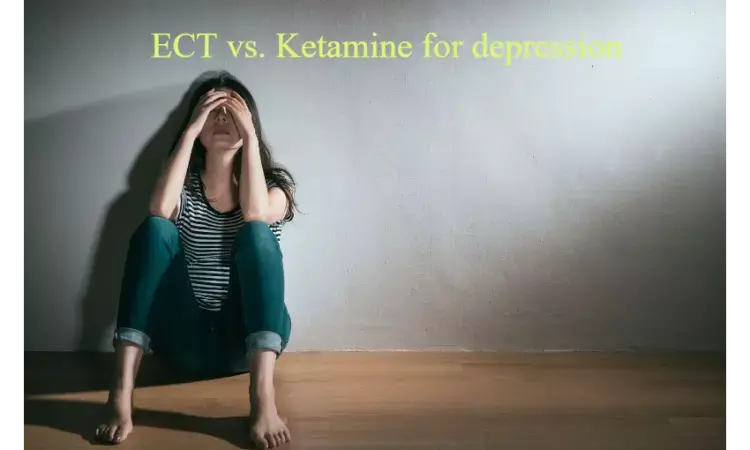- Home
- Medical news & Guidelines
- Anesthesiology
- Cardiology and CTVS
- Critical Care
- Dentistry
- Dermatology
- Diabetes and Endocrinology
- ENT
- Gastroenterology
- Medicine
- Nephrology
- Neurology
- Obstretics-Gynaecology
- Oncology
- Ophthalmology
- Orthopaedics
- Pediatrics-Neonatology
- Psychiatry
- Pulmonology
- Radiology
- Surgery
- Urology
- Laboratory Medicine
- Diet
- Nursing
- Paramedical
- Physiotherapy
- Health news
- Fact Check
- Bone Health Fact Check
- Brain Health Fact Check
- Cancer Related Fact Check
- Child Care Fact Check
- Dental and oral health fact check
- Diabetes and metabolic health fact check
- Diet and Nutrition Fact Check
- Eye and ENT Care Fact Check
- Fitness fact check
- Gut health fact check
- Heart health fact check
- Kidney health fact check
- Medical education fact check
- Men's health fact check
- Respiratory fact check
- Skin and hair care fact check
- Vaccine and Immunization fact check
- Women's health fact check
- AYUSH
- State News
- Andaman and Nicobar Islands
- Andhra Pradesh
- Arunachal Pradesh
- Assam
- Bihar
- Chandigarh
- Chattisgarh
- Dadra and Nagar Haveli
- Daman and Diu
- Delhi
- Goa
- Gujarat
- Haryana
- Himachal Pradesh
- Jammu & Kashmir
- Jharkhand
- Karnataka
- Kerala
- Ladakh
- Lakshadweep
- Madhya Pradesh
- Maharashtra
- Manipur
- Meghalaya
- Mizoram
- Nagaland
- Odisha
- Puducherry
- Punjab
- Rajasthan
- Sikkim
- Tamil Nadu
- Telangana
- Tripura
- Uttar Pradesh
- Uttrakhand
- West Bengal
- Medical Education
- Industry
ECT may be more efficacious than ketamine in acute episodes of MDD, meta-analysis.

More than 30% of individuals who experience major depressive episodes (MDEs) do not achieve remission after several trials of antidepressants. Such treatment-resistant depression (TRD) has conventionally been managed by Electroconvulsive therapy and more recently with ketamine. However, no study has yet quantified the overall treatment effect sizes of efficacy and safety outcomes between ketamine and ECT.
A recently conducted meta-analysis and systematic review published in JAMA Psychiatry has shown that that ECT may be superior to ketamine for improving depression severity in the acute phase.
The study included 6 clinical trials comprising 340 patients and efficacy outcomes included depression severity, cognition, and memory performance. Safety outcomes included serious adverse events (eg, suicide attempts and deaths) and other adverse events.
The overall pooled SMD for depression symptoms for ECT when compared with ketamine was −0.69, suggesting an efficacy advantage for ECT compared with ketamine for depression severity.
Any virtues with ketamine use?
While the meta-analysis suggests that ECT may be superior to ketamine in terms of efficacy, treatment options should still be individualized and patient-centered because ketamine's faster antidepressant effects may still be desirable for certain patients with severe MDE who require quick recovery from the severity of depression.
"For instance, 3 studies qualitatively reported that ketamine had more rapid antidepressant effects than ECT during the initial course of treatment sessions, whereas 1 study found that patients receiving ECT recovered more quickly than those receiving ketamine", note authors.
What about cognitive effects?
Because of underpowered study designs, no firm conclusions regarding cognition and memory performance can be made in this meta-analysis.
An important consideration for clinicians and patients with serious depression is the comparative tolerability and safety of ketamine vs ECT. The provision of ketamine only involves the administration of a low dose of anesthesia medicine, while the provision of ECT involves the administration of a full dose of anesthesia plus an electrical stimulus that induces a seizure. Hence, it is expected that ketamine would be better tolerated and safer than ECT.
To conclude, although ECT may be more efficacious than ketamine in the acute phase, treatment options should be individualized and patient-centered, considering different adverse effect profiles and patient preferences.
Source: JAMA Psychiatry: doi:10.1001/jamapsychiatry.2022.3352
M.B.B.S, M.D. Psychiatry
M.B.B.S, M.D. Psychiatry (Teerthanker Mahavir University, U.P.) Currently working as Senior Resident in Department of Psychiatry, Institute of Human Behaviour and Allied Sciences (IHBAS) Dilshad Garden, New Delhi. Actively involved in various research activities of the department.
Dr Kamal Kant Kohli-MBBS, DTCD- a chest specialist with more than 30 years of practice and a flair for writing clinical articles, Dr Kamal Kant Kohli joined Medical Dialogues as a Chief Editor of Medical News. Besides writing articles, as an editor, he proofreads and verifies all the medical content published on Medical Dialogues including those coming from journals, studies,medical conferences,guidelines etc. Email: drkohli@medicaldialogues.in. Contact no. 011-43720751


